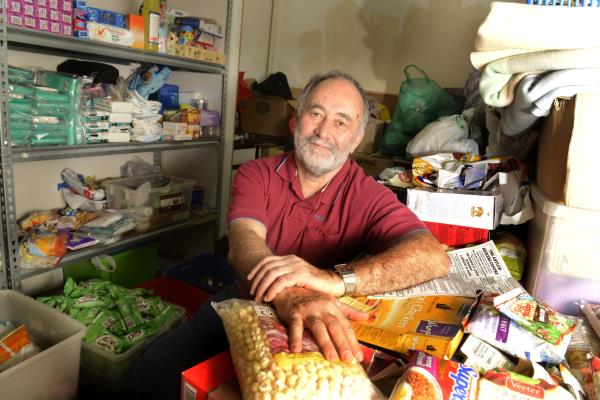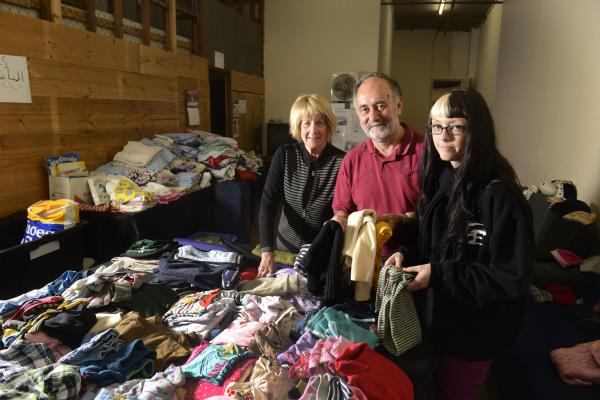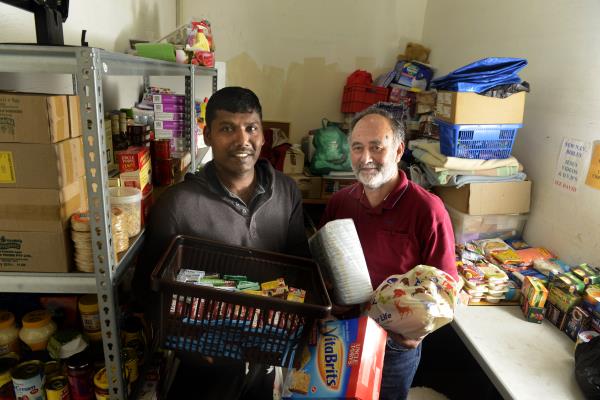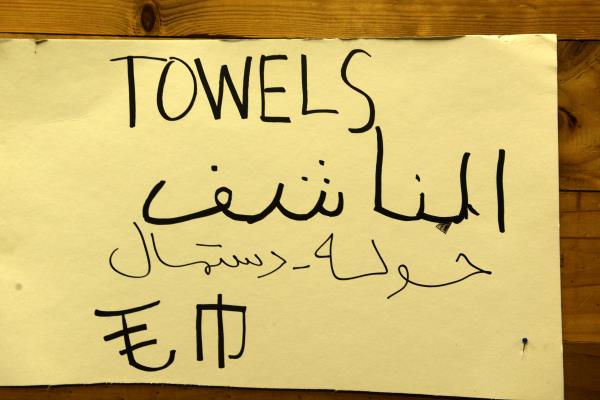By CAM LUCADOU-WELLS
DAVID Spitteler has been an avid collector of statistics since opening his volunteer-run Asylum Seekers Centre 16 years ago.
He says the numbers of those seeking help are increasing, and it’s getting harder to make his numbers stack up.
According to Mr Spitteler’s list, the centre, which moved to Dandenong in 1999, has distributed more than $4.3 million of material aid.
That includes 75,419 food packs, 10,426 sheets, 6234 blankets, doonas and sleeping bags, 8116 jumpers and 2943 computers.
Not to mention the donated fridges, washing machines, microwaves, DVD players, TVs and vacuum cleaners by their hundreds.
When the centre opened in Balaclava, donations began to trickle in: a Metcard here, $5 there, a can of beans.
In the past 17 years, there have been more than 2500 from all over the country, totalling more than $500,000.
Its most recent donations listed in the July newsletter include 12 laptops from Dandenong High School, food from Mt Martha IGA supermarket as well as food and cash from churches in Melbourne’s east and south east.
But goodwill can only stretch so far. Mr Spitteler has been forced to limit registrations to cope with increased demand in the past two years.
On the books are 344 asylum seekers, who are registered to pick up food once a week. Thirty of those registered in one week last month.
By necessity that excludes many of the 608 new asylum seekers, mainly from Sri Lanka, Iran and Afghanistan, that have registered for help.
Each applicant is limited to six months for food packs, and are taken off the books if they miss two weeks.
“It’s a hard approach but if we don’t do it, we can’t keep up with the numbers. As it stands we’re pushing the limits of what we can do.”
It’s been a consuming second career for Mr Spitteler.
He founded the centre soon after retiring as a national marketing manager for Telstra the day after his 53rd birthday on 19 June 1994.
“The aim was to find something I could do in a creative way in the church environment,” he said.
When a friend suggested he help asylum seekers, he had no idea what he was talking about. But he learnt, as he first helped an Ethiopian-born asylum-seeker to use a computer and craft a resume.
“Asylum seekers were allowed to work in those days,” Mr Spitteler said.
Of its 38 volunteers, 10 are asylum seekers and four are tertiary students on work placement. They share the same passion to “do something”.
“I come from a Christian perspective but we have Christians, Muslims, non-Christians all from different backgrounds who work together here.
“Everyone gets on with everyone.”
They have rallied around Mr Spitteler, who seriously sprained an ankle recently. He has had to put on hold his regular speeches to churches, schools and groups around the state – more than 1600 since the centre opened.
During the debilitating time, volunteers have driven him around, cooked for him and his wife.
He supports the Federal Government’s need for an asylum seeker processing system, and not allowing them in “willy-nilly and by any means”.
“It just needs to be done quickly. Holding them in detention while doing that is reasonable, slowing down the process is just inhumane.
“My gut feeling is it’s better than what the media say.”
However he’s seen “very positive” Tamil asylum seekers become depressed while on bridging visas, living on less than the dole and deprived of work rights.
He says they needed to be moved out of the visa system – for the good of them and the stretched charities, pro bono lawyers and volunteers supporting them.
“They stay in the same house, many don’t speak English and have nothing to do. Nothing happens for a year to 18 months. What do people think will happen?
“How are they going to be mentally? There’s the distinct possibility they’re going to break the law to sustain themselves.”










